Well, we think it’s safe to say that Yamaha is really enjoying these past few weeks. Not only was the launch of the 2016 lineup of WaveRunners a huge success, but now the Off-Road Division is riding a tidal wave of fanfare over it’s new YXZ1000R; not only the successor to the outgoing Rhino SxS, but a direct challenger to the turbo Can-Ams and Polaris RZR-S.
What many of us watercraft enthusiasts caught in the YXR’s unveiling was the incorporation of an all-new three-cylinder 4-stroke. Although sightly smaller in displacement than the WaveRunner’s TR-1 (998cc vs. 1048), the new three-cylinder shares much of the same architecture, mainly its 3-cylinder, 12-valve, DOHC, liquid cooled design.
Of course, besides the decreased cc’s, the new SxS plant also touts an aggressive 11.3:1 compression ratio and 10,500 RPM redline (not to mention vastly different exhaust and air intake arrangements). So what does this have to do with a modern SuperJet, you’re asking. And we’d tell you to just give us a minute. Jeez, you’re impatient…
We’ve been blathering on and on about paying close attention to what Raceski.com’s Rob Flores has been working on. Then, Yamaha introduces a lightweight 3-cylinder that is both compact and more powerful than the outgoing 1.1-liter engine. And now the new 3-cylinder engine platform shows up in Yamaha’s much-anticipated YXR1000R. Folks, Yamaha is making moves and we’ve got quite a bit of smoke to give us a enough reason to call “fire.”
Yesterday we received this incredibly low resolution cell phone picture of a lineup of Flores’ various race craft (see below). Obviously, Flo’s #88 Raceski.com is recognizable, as well as a pair of yellow-and-white SuperJets that we’ve seen before (above), but front-and-center is an all-black unit that is a bulbous, wide-bodied version of Flores’ other designs. Even the images of Flores’ prototype “wide tray” SuperJets weren’t as big as the one shown below.
Then came some really cryptic news: Apparently, Yamaha’s been messing with different configurations of the TR-1 marine engine. And since confirmation of the following performance rumors is completely out of the question, it’s worth mentioning each should be taken with the appropriate grain of salt:
In stock form, the TR-1 cranks out “somewhere between 115-and-125 horsepower.” When given a reflashed ECU with a custom tune, the TR-1 wakes up quite a bit, jumping up to 165 horsepower. Toss in a pair of forged pistons and you’ve got 185 ponies. Slap on a turbo and you’ve got an insanely nasty 3-banger, spitting out over 260 horsepower. Oh, and apparently that setup can last several hundreds of hours on the dyno, that is, according to our source.
If these claims are true, then the TR-1 has far more potential than just a entry-level runabout engine, a replacement to the 701cc two-stroke or even the larger 4-cylinders. But that’s an entirely different conversation. As it stands, Yamaha has an engine that’s ideal for a SuperJet, a handful of prototype hulls being produced by an IJSBA Hall of Fame racer, and a heck of a lot of interest in a new 4-stroke standup. Sounds like a homerun to us.





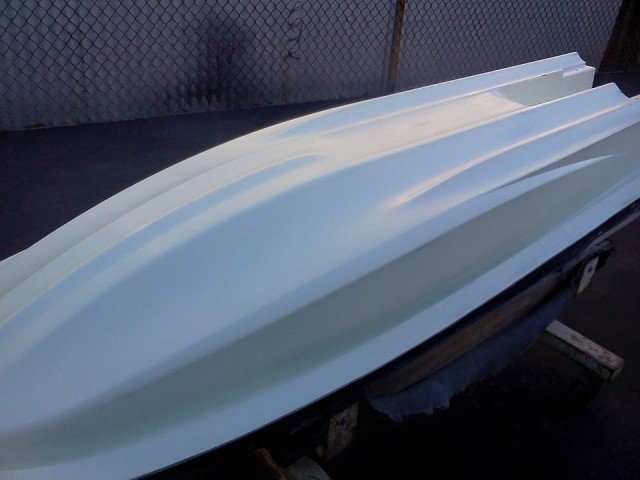
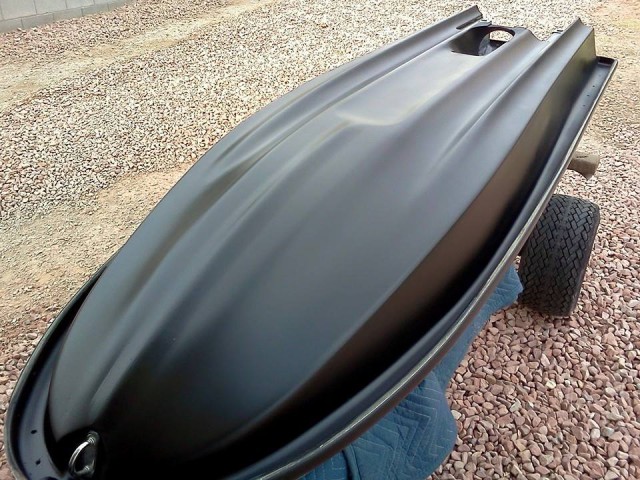
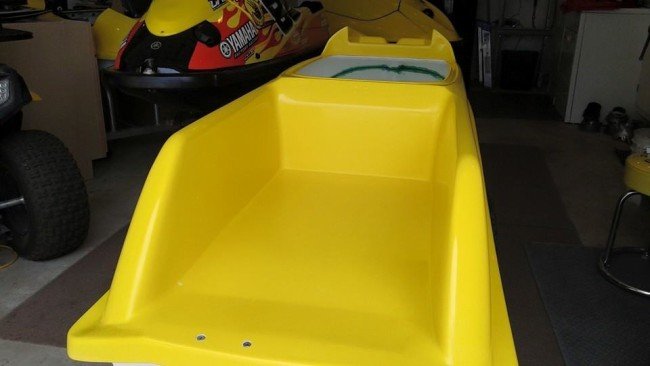
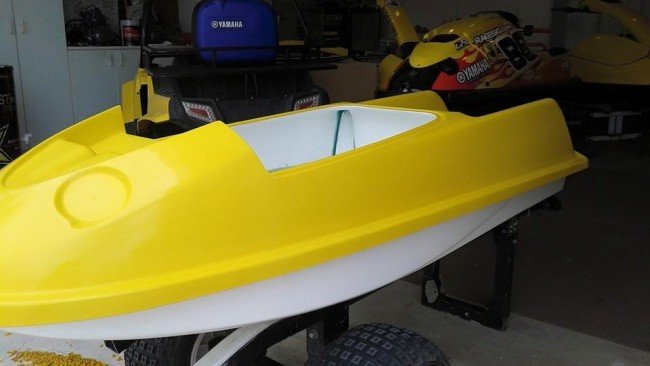
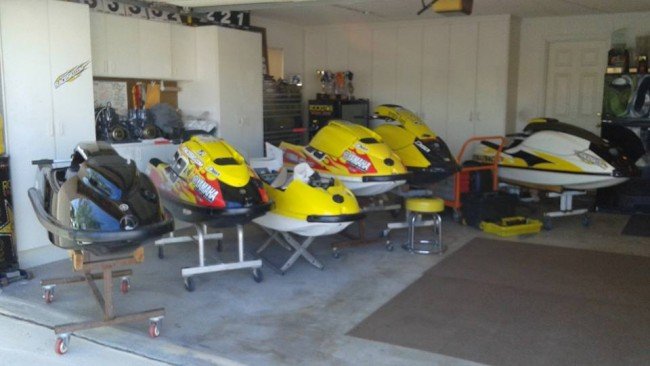




If the rumours about the TR-1 prove true then the regular ol VX could prove to become VERY popular with modders and the aftermarket. And that’s dispite the existance of the 1812cc engined VXR simply because that 3 cylinder configuration shaves a CRAPTON of weight alone. A tune and pistons and you’re making stock VXR horsepower but with a lot less weight in the engine bay. That sounds faster in my book. Though there’s still the issue of the smaller diameter pump. Hmm
Also, asside from the basic configuration, what are the similarities between the TR-1 and the YXZR’s engine? Are they sharing the same block?
We’re digging into more details on the similarities between the YXR and TR-1 as we speak.
GO YAMAHA!!!! Lead the way! Keep developing and growing this industry! All the others will be sucking their jet blast
well its about time folks!……..all i can say is yahoo!……..my deposit is ready yamaha!
WOW!!!
this could really put some pressure on BRPs SPARK segment…
Well this is making me re-think our current order for two 2016 SuperJets, they are due to arrive next week.
I’m 55, and I WILL have another stand up ski before I croak. New, gently used, it makes no difference.